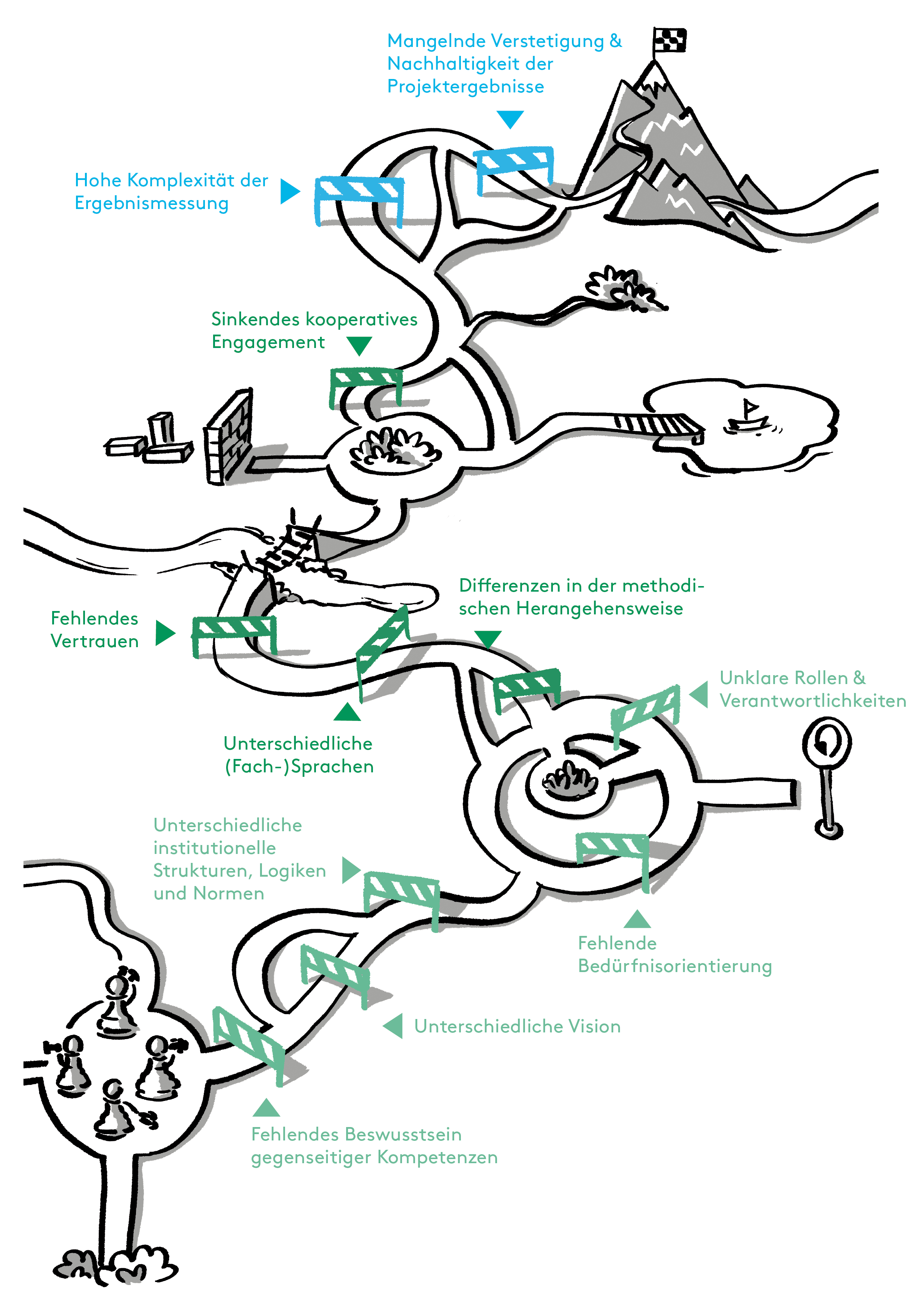10 Mai 2021 | Münster
At the FORUM CITIZEN SCIENCE: "Vertrauen, Wirkung, Wandel - Citizen Science als Antrieb von Veränderung?" from May 6th-7th 2021 Dr. Kerstin Kurzhals and Katrin Uude from the S2BMRC presented their whitepaper on transfer barriers in transdisciplinary projects.
Since the complexity and scope of major societal challenges is increasing, innovative solutions are needed which cannot be developed by scientists alone. It requires the inclusion of societal actors in research and innovation activities to broaden the diversity of perspectives and knowledge. Thus, cooperation between science and society is becoming increasingly relevant as a strategic field of development to adequately address the complex challenges by combining scientific excellence with social awareness and responsibility.
Therefore, the Science-to-Society research line from the S2BMRC became part of the transdisciplinary project: münster.land.leben. The project deals with strengthening health, participation and well-being in rural areas, sponsored by the initiative: Innovative Hochschule. One main goal of the project is to identify possible barriers which could inhibit the cooperation between scientific and societal actors and thus the knowledge/technology transfer. With combining theoretical knowledge gained by a systematic literature review on possible barriers and practical insights from various actors from münster.land.leben gained by participatory action research, the whitepaper presents twelve critical transfer barriers in science/society cooperation.

The whitepaper contributes to the scientific research, as the systematic identification and categorisation of transfer barriers in transdisciplinary cooperation has been a research gap so far. With referring the theoretical findings back to practice and the final renewed abstraction it is ensured that the results can generate not only a theoretical but also a practical value. This procedure ensures both a scientific and practical reference of the results and the systematic categorisation of the knowledge gained from science and practice provides a holistic approach and serves as the foundation to further develop tools and methods to address and overcome these transfer barriers not only for münster.land.leben but as a toolbox for all science/society cooperation. This toolbox follows the same approach by offering practical tools and methods for stakeholders from science and society to strengthen their cooperation with addressing potential barriers and giving practical support to overcome them. Like it is stated in the beginning: the major society challenges cannot be tackled by science or society alone and therefore raises the need for gemeinsam.zunkunft.gestalten.
The results of the whitepaper were met with great interest by both academics and representatives from society at the conference. The discussions in the panels and the input of the Keynote-Speaker have shown that interdisciplinary projects between academics and societal partners are highly relevant in our current society which underlines the relevance of the research line science-to-society and their work.
The science-to-society research line is actively involved in the broad Citizen-Science Community and founding member of the "Citizen Science Netzwerk - Region West".


